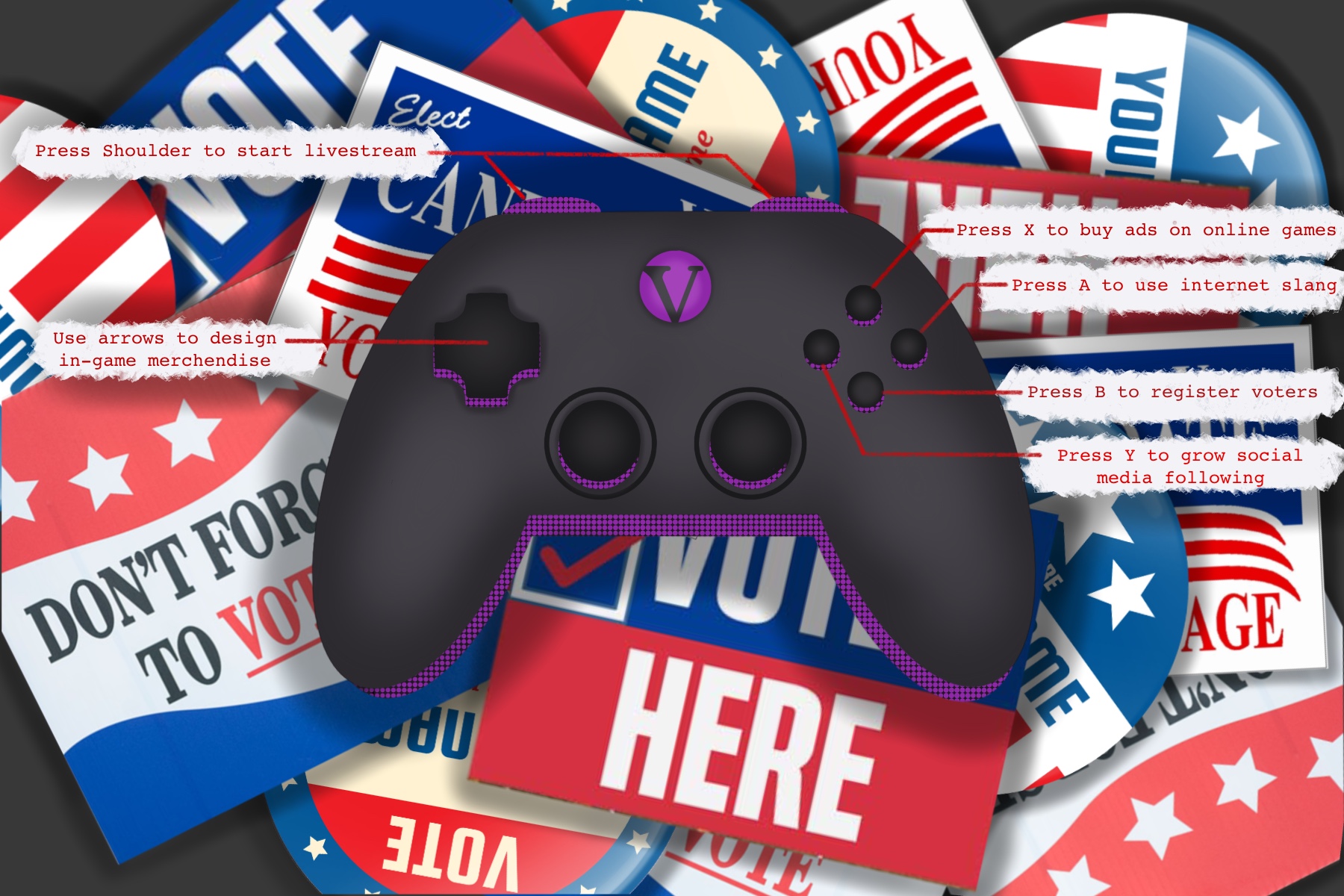Just before the 2020 presidential election, a famous streamer was playing Among Us, an immensely popular online multiplayer game, when they were “killed” by Rep. Alexandria Ocasio-Cortez (D-N.Y.). AOC, a regular player, had more than 400,000 users watching her at the time – making her stream the third most-watched stream on the platform. What AOC was doing – playing video games online while live streaming – was a part of a larger voter outreach campaign known as Gamer Vote.
Gamer Vote is a political strategy that involves politicians connecting with gamers – generally millennials and Gen-Z – to encourage political engagement and, ultimately, voting. With the shift towards gaming and time online during the pandemic, Gamer Vote may never have been more effective.
And according to Gamers.Vote, a non-profit created to help empower gamers to participate in politics, there are over 160 million gamers eligible to vote in U.S. elections each year – and the number of gamers is rising. With the pandemic, the gaming industry is booming: In 2020, gamers spent $44 billion in gaming software and services, for example. New gamers in the U.S. also rose to 227 million from 214 million – an increase of 6%. In April 2020, at the height of the pandemic lockdown, 55% of U.S. consumers were playing video games, setting the stage for the continued growth of Gamer Vote.
Despite the pandemic’s push towards digitalization, the strategy isn’t actually new. It goes back to the 2008 Obama campaign, which made history by placing the first presidential ads in video games with a focus on hard-to-reach young adult male voters. They expanded their video game presence in 2012, buying ads in 18 online games that targeted swing states, including Need for Speed and Madden NFL 13.
In an election on the other side of the country, Democratic Rep. Josh Harder credits video games, Snapchat advertising, and live streaming to his narrow win in California during the 2018 election cycle. He flipped the district by only 10,000 votes, and, although he is quick to point out that they also used traditional tactics, the demographics he reached through gaming made a noticeable difference.
The 2020 Biden campaign didn’t rely as heavily on live streaming, but they did initiate partnerships with popular online games Fortnite and Animal Crossing in efforts to raise awareness for their campaigns. Players could put Biden signs in their Animal Crossing yards and explore in-game map challenges while playing Fortnite.
While it has largely been Democratic campaigns pursuing Gamer Vote as a political strategy, there is huge potential for campaigns to expand their base by reaching this still largely untapped voter segment, especially as Twitch has already been recognized as one of the most effective entertainment venues for reaching younger voters.
The increased digitalization of the pandemic has changed what the gaming industry looks like and the pandemic has further digitized our lives in ways that aren’t going to disappear. Away from politics, the potential value is already clear. In 2020, the NFL’s Detroit Lions used an online game to share their season schedule. Travis Scott, a popular singer, hosted five concerts in Fortnite that were attended by 45 million viewers and Lil Nas X performed a concert in Roblox, another online game, that was viewed by 33 million users.
So, if Gamer Vote is to become a serious part of political campaigns, the process needs refining and organizing. Especially as platforms and the gaming industry evolve rapidly.
But not every politician can break into the gaming community. Politicians need to be digitally-savvy, authentic, transparent, and able to use social media. Many were skeptical when AOC joined the Among Us community, and it took her gaming ability to win respect (although the skepticism may also have had something to do with rampant sexism in gaming culture). With average ages in the Senate and House currently at 63 and 58 respectively, understanding evolving platforms and their users may pose extra difficulty for some legislators.
Going forward, it will be crucial for political campaigns investing in Gamer Vote to understand these fast-moving changes if they are going to maintain their authenticity and popularity. AOC’s use of gaming slang while streaming is one way to build an authentic connection with viewers.
But while streaming may raise her profile as a politician – and her social media following – it may not expand her voter base, as political opponents seem less likely to participate in a back-and-forth dialogue, such as a traditional debate, while online. In other words, the people watching are likely already AOC fans.
That means that politicians need to understand the nuances and intricacies of their chosen gaming platform in order to reach users, many of whom are loyal to a specific medium. Unintended consequences of the Gamer Vote strategy can come in the form of social media smear campaigns, reputational damage, and even investigations. More research on the specific gamer demographics in each voting district can help politicians understand investment in specific gaming and social media advertisements.
While Gamer Vote is still in its infancy and much of its potential remains untapped, research will help build more effective campaigns – and determine how much investment is worthwhile. The process likely needs further refining to increase efficiency and find new ways to move politically disinclined people to action – which is compounded by the digital divide many communities face.
With the gaming industry surging as the pandemic continues, politics and the digital spaces we occupy will creep closer and closer – with potentially enormous implications for tightly contested elections that can shape our future as young people.
This is published after research with Guan Fu and Andy Pang in the Communication, Culture, and Technology masters program.






There is definately a lot to find out about this subject. I like all the points you made